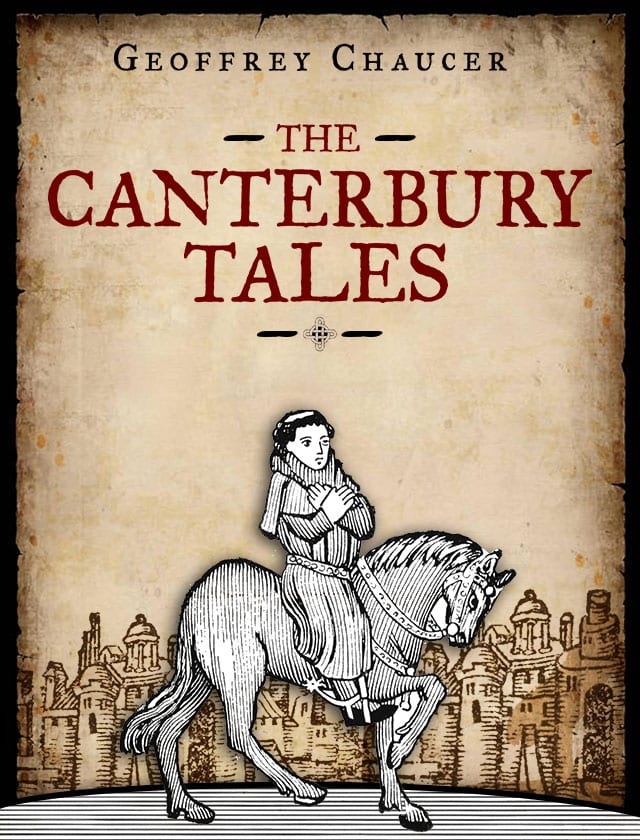The Canterbury Tales is a collection of 24 stories written between 1387–1400, mainly in verse, in English. The tales are presented as contributions to a story-telling contest by a group of pilgrims travelling from London to Canterbury to visit the shrine of Saint Thomas Becket. Chaucer’s plan was to write two stories for each of the pilgrims, telling their tales both on the way there and on the return journey. There are some thirty pilgrims introduced but not all of them tell a tale and the work is unfinished: there is only one story from each of the storytellers.
The tales present a critical picture of mediaeval English society, focused mainly on the Church. They encompass the whole range of classes and types of people inhabiting England. It becomes clear that although they are on a pilgrimage, there is a distinct holiday atmosphere and the stories show that they are almost all concerned more with worldly than spiritual things. There is a narrator, Chaucer himself, who introduces each of the storytellers, and then each one tells his or her story. Chaucer fits the language to the class and background of each of the characters, from the chivalric knight, through the sexually voracious Wife of Bath and the crude Reeve, to the humble scholar. The different styles invoke thoughtfulness at times and laughter at others, with some of the funniest, most bawdy stories in English literature. The whole represents the range of customs and practices of the time, and it is from this work that much of our understanding of mediaeval English society comes.
One of the most important aspects of The Canterbury Tales and its main contribution to English literature was its popularising the literary use of vernacular English. Other mediaeval English writers also wrote in English but because of Chaucer’s vivid and humorous verse and lively and lifelike characters his text was more accessible and he certainly brought English in from the cold to displace French and Latin in English writing.
Before Chaucer, depictions of English society were more or less restricted to the doings of the elevated – knights, monarchs etc. but Chaucer gave us beggars, poor students, lusty housewives, thugs and out and out crooks. He gave us insights into the considerations that preoccupied ordinary people and was unabashed at offering the crude sexual antics of ordinary people. The result is that he has represented people who lived several centuries before us who are just like us, showing that you can change the facilities we enjoy, the clothes we wear, and all external things but the people who went before us are just like us. Chaucer’s characters are as fresh and alive as though they are living today, and they are not alien to us but highly recognisable.
See the full list of NoSweatShakespeare’s 20 most influential works of fiction >>





Leave a Reply
Want to join the discussion?Feel free to contribute!